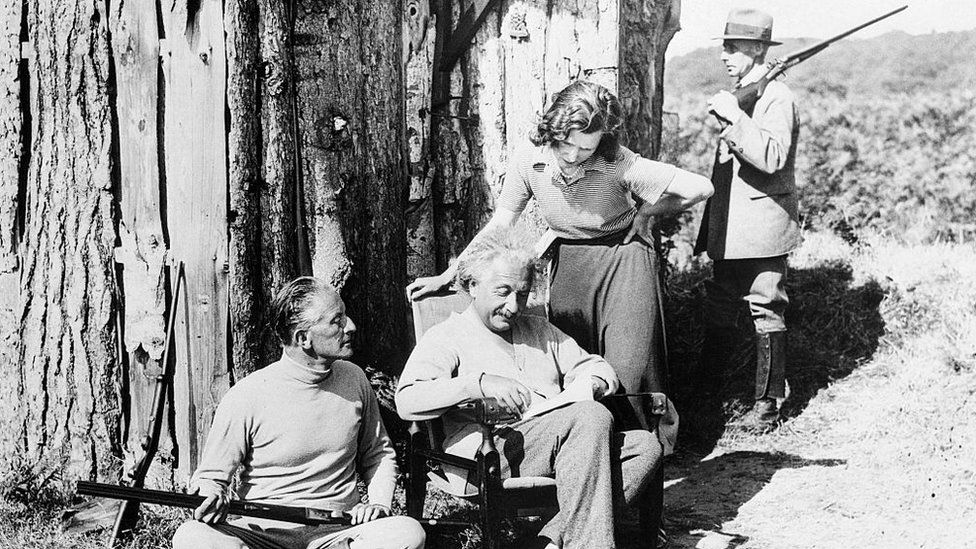Albert Einstein's hideaway in hut documented in new book
- Published

The story of how a world-famous genius ended up hiding under armed guard in a log cabin on a remote heath has been told in a new book.
Albert Einstein found sanctuary in the cabin on Roughton Heath, near Cromer, Norfolk, for three weeks in 1933 after fleeing the Nazis.
He was the guest of the MP Cdr Oliver Locker-Lampson.
Writer Stuart McLaren, who explored the pair's relationship in his new book, said Einstein "became a refugee".
The Norfolk author said: "In 1933 Hitler came to power in the land of [Einstein's] birth in Germany.
"And Einstein, being a Jew and an intellectual and very anti-Nazi, became public enemy number one.
"It was too dangerous for him to live there, so he had to find somewhere else."
Einstein had been offered sanctuary by the eccentric Conservative MP, who represented a number of constituencies during a long political career and whose family had a large summer home in Cromer.
However, it was believed to be too dangerous for the physicist to stay at the seaside house after he fled Belgium following death threats.
Instead, he was hidden in a hut at a camp on the nearby heath and, with a bounty on his head, was guarded by local men armed with guns.
Einstein continued to work and artist Jacob Epstein even visited him there to sculpt his famous bust of the scientist.
While researching his book, Saving Einstein: How Norfolk Hid a Genius - The Double Life of Oliver Locker-Lampson, Mr McLaren found out that Einstein was given access to many luxuries.
"He even had a piano installed in one of the huts and they got him a violin," he said.
"They got him a butler and cook to serve him food, a wind-up gramophone and there was even a flock of goats to provide him with goat's milk, which Einstein preferred to cow's milk."
Following his stay at the secret camp, the 1921 Nobel Prize winner made his way to the United States where he sought asylum and remained for the rest of his life.
In 2005, a blue plaque was unveiled in the village to mark Einstein's Norfolk getaway - the only commemoration of a most unlikely visitor.
- Published23 November 2021
- Published22 May 2021
- Published24 May 2019
- Published6 March 2019